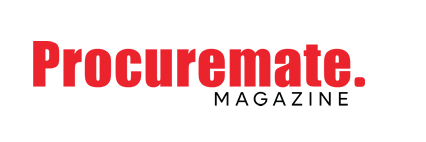As the cost of living in the nation increases, characterized by rising prices of goods and services, many Ugandans with smartphones have fallen prey to numerous moneylending apps advertised on social media platforms.
These apps provide quick loans, which most Ugandans use to obtain the funds necessary for their survival. Despite the Uganda Microfinance Regulatory Authority’s efforts to ensure that most moneylending apps operating under their jurisdiction follow set guidelines, an online campaign on X, trending with the hashtag “#IllegalOnlineLoanApps,” has highlighted significant issues.
The campaign, led by Ronald Egesa, a cyber forensics investigator and longtime activist, revealed that many Ugandans have become victims of the growing number of apps flooding the digital space. These apps offer loans with very high interest rates, and when borrowers fail to repay, they are subjected to harsh debt collection tactics.
Borrowers face unorthodox debt collection methods such as data shaming on social media platforms, intimidation and threats. These practices have led some Ugandans to suffer from depression, lose respect among their peers, and, in the worst cases, lose their jobs.
In an interview with Rachael Vanessa Muhwezi, the manager in charge of Microfinance Institutions at the Uganda Microfinance Regulatory Authority (UMRA), she noted that unregistered and unlicensed moneylending apps have caused havoc in the digital financial space. She explained, “These apps use intimidation, threats, blackmail, and data shaming against people who fail to meet their loan obligations.”
UNRA REGULATIONS
Muhwezi highlighted that UMRA has established guidelines to regulate the practices of moneylending apps that are registered and licensed by UMRA. These digital lending guidelines ensure that app-based moneylenders do not abuse their clients through harsh methods like data shaming.
She quoted Regulation 15, subsection C, issued under Digital Lending Regulations, which states, “A digital credit provider must not make unauthorized or unsolicited calls, social media channels, or messages to customers’ contact lists who were not parties to the loan transaction.”
Muhwezi emphasized that such practices are illegal and those who engage in them risk being shut down and removed from the financial sector of Uganda.
“As a regulator, we also assure the public that any loan product app that is abusing the sector, after the issuance of the guidelines, will be addressed. We will work with Google and aggregators to ensure that these illegal apps, which aren’t registered by UMRA, are shut down,” she said.
Additionally, the Uganda Microfinance Regulatory Authority doesn’t license any institution giving out loans without a physical office. Most of the apps registered under UMRA have offices, providing a mechanism to trace where they carry out operations.
“There is no licensee who operates a moneylending app and doesn’t declare those apps. According to the digital lending regulations, each institution that operates a moneylending app should be operated by one company,” Muhwezi said.
However, in another interview, Ronald Egesa, the brains behind the campaign against the loan applications, highlighted the weaknesses within UMRA that enable the continued illegal operations of these loan applications in the country. He explained that his research led him to discover that only three loan applications licensed by the UNRA are harassing Ugandans by operating over 33 illegal applications.
“The people from UMRA are not doing their task. They have slain Ugandans in their duty to regulate these lenders. These companies are running apps that are not in the names of the licensed entities, something that is against the guidelines, and the regulator is looking on,” he said.
Egesa revealed that UMRA compensates victims who are bold enough to report the matter, raising concerns about whether they are also third-party players in the illegal operation of these moneylending applications.
“The director of Supervision at UMRA told me they have a history of these people coming to compensate complainants who go the extra mile to follow up this matter with UMRA,” he said.
He explained that the loan applications use pre-registered numbers to operate as a way to avoid activating mobile money services, which could potentially reveal the identities behind the numbers. By keeping the numbers unlinked to specific individuals, the operators can use them to harass borrowers through insults and incessant calls without being easily traced.
NAUSEATING ROBOCALLS
Additionally, he said that the loan apps employ Sim Boxing technology, allowing them to run robocalls that continuously switch numbers, making it challenging for authorities to track and identify the perpetrators.
This highlights a weakness on the side of telecommunication companies because they continue to allow these numbers to operate. On the other hand, this poses a significant security risk as criminal syndicates could exploit this loophole, further complicating efforts to combat illegal operations in the country.
Furthermore, he stated that loan applications acquire personal data from borrowers when they install a mobile application and request permissions to access various aspects of the device, such as the camera, contact list, call logs, and text messages.
“If the borrower grants these permissions, they are essentially giving electronic consent for the app operators to access their information. This means that the operators behind the app can then retrieve and utilize the borrower’s personal data, including contacting their listed contacts and potentially threatening them. By exploiting these granted permissions, the loan applications can access sensitive personal information and use it for their own purposes, which can lead to privacy breaches and harassment of borrowers and their contacts,” Egesa said.
Egesa suggested that for these loan applications to operate legally, they must adhere to the regulations and guidelines set forth by regulatory authorities such as the Uganda Microfinance Regulatory Authority and the Bank of Uganda.
To work within the legal framework, the loan apps should ensure that only aggregate borrowers who are in good standing with UMRA and other regulatory bodies are allowed to operate. This means they must conduct thorough due diligence on their borrowers, verify their identities, assess their creditworthiness, and comply with all licensing requirements.
Additionally, the loan apps should refrain from engaging in underhanded methods such as harassment, unauthorized data access, and illegal debt collection practices. By operating transparently, ethically, and in full compliance with the law, these applications can contribute positively to the financial ecosystem and provide legitimate financial services to borrowers in need.
Egesa also pointed out that it is essential for the loan apps to prioritize consumer protection, data privacy, and regulatory compliance to ensure sustainable and lawful operations within the financial sector.
VICTIMS
When press reached out to one of the victims of these applications, who agreed to be interviewed under the condition of anonymity, she shared her distressing experience. Due to financial struggles, she acquired a loan from Centehub Plus, an online moneylending application, after receiving constant notifications on her phone about instant loans.
She explained that she borrowed Shs 50,000 but received only Shs 24,000, which implied an interest rate of 108.3%. She was required to repay the money within seven days. When she failed to do so, the debt rapidly accumulated to Shs 100,000.
“They started calling me on the third day, demanding repayment and threatening to call all the people on my contact list if I didn’t comply,” she said.
“They sent messages to all my contacts, attaching my picture and labeling me a fraud, urging people not to engage with me.”
She added that some of her friends and family were told different amounts of money she allegedly owed to Centehub. This was followed by harassing messages and calls, with some of her contacts being told that she had been arrested by the police.
Due to her medical history, this situation caused her significant stress, resulting in persistent headaches from the name-calling, insults, and vulgar language used in the calls.
“They spoiled my reputation by calling my friends and family and even threatened to cause harm if I did not pay,” the victim recalled.
Additionally, she mentioned that the data shaming led to her suspension from work for two weeks after her bosses found out. Even after returning to work, she received a warning letter cautioning her about such incidents, implying that she could be fired.
Another victim, who The Observer interviewed under the condition of anonymity, revealed that after failing to repay the Shs 100,000 loan within the grace period, he was shocked to wake up one day and find a WhatsApp group created by the debt collectors from the loan application. The group included all his contacts, and the debt collectors were shaming him and calling him all sorts of names.
“I acquired the loan because I was having some financial constraints at home, but after receiving the loan, I started getting frequent calls from the debt collectors arrogantly asking me to pay back or else they would do something bad,” the victim recalled.
He explained that the debt shaming devastated him, resulting in his reputation being tarnished even among people who held him in high regard. The debt collectors exaggerated the amount of money he borrowed.
“I had to call some of the contacts the debt collectors reached out to explain what really happened. Their actions resulted in the loss of job offers that people usually gave me,” he said.
When The Observer reached out to Timothy Kajja, a legal associate at KTA Advocates, he noted that government organizations especially the Uganda Microfinance Regulatory Authority should work hand in hand with the Ugandan Communications Commission (UCC) to ensure that illegal moneylending apps are blocked from operating in Uganda’s digital environment.
“UCC should be able to identify the moneylending apps that don’t fall under the jurisdiction of UMRA and block them from operating in the country, just like they did with Facebook,” he said.
Kajja noted that the illegal loans given out by unregistered moneylending apps are channeled through mobile money-based networks. In most cases, when borrowers fail to repay, they are exposed to data shaming. He called upon players like MTN and Airtel to ensure that they do not allow moneylending apps to operate without the required licensing from UMRA.
“Bank of Uganda should also take action against other PSO aggregators that enable unregistered moneylending apps to offer loans without a license. They should demand that these apps be licensed by UMRA,” Kajja said.
Speaking about the act of data shaming carried out by illegal moneylending apps operating in Uganda’s digital space, Kajja noted that Uganda’s Data Protection and Privacy Regulations of 2021 do not permit the sharing of personal data without consent.

